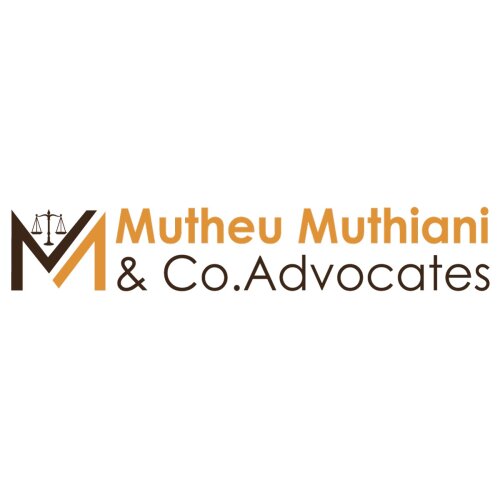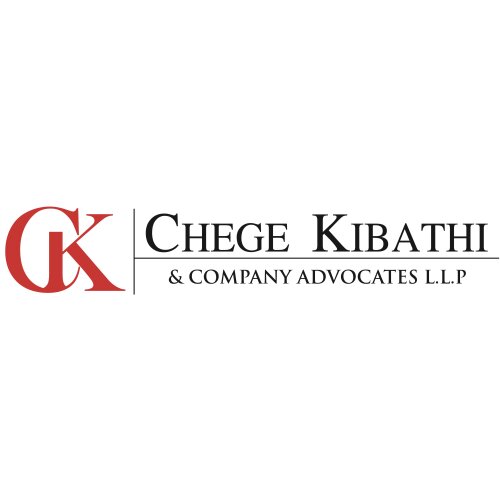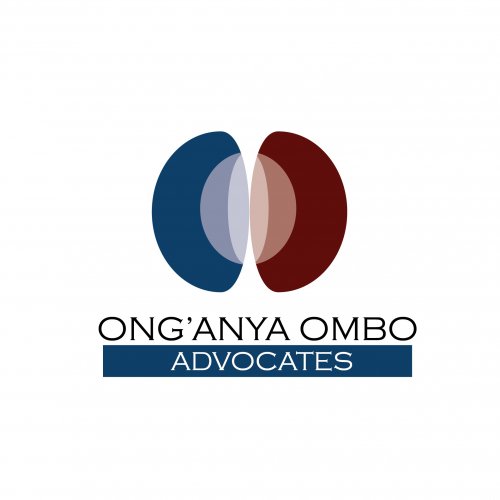Best Mining Law Lawyers in Kenya
Share your needs with us, get contacted by law firms.
Free. Takes 2 min.
Or refine your search by selecting a city:
List of the best lawyers in Kenya
Legal guides written by Adroit Law LLP:
- Kenya Launches Digital Nomad Visa: A Gateway for Remote Workers
- Navigating the Payment System License Maze in Kenya
- Navigating the Complexities of Mining Licenses and Permits in Kenya: A Look into Artisanal and Large-Scale Operations
About Mining Law in Kenya
Mining Law in Kenya governs the exploration, extraction, processing, and export of minerals found within the country. This legal field covers the rights and obligations related to land ownership, environmental regulation, investment, and the relationship between the government, communities, and private companies. The Mining Act, 2016, is the primary legislation guiding mining activities in Kenya. The law aims to ensure that mineral resources are managed sustainably, with consideration for environmental protection, equitable benefit sharing, and the involvement of local communities.
Why You May Need a Lawyer
A lawyer specializing in Mining Law can help you navigate the legal complexities that arise during mining projects. Here are some common scenarios where legal assistance might be essential:
- Applying for or renewing mineral rights, such as prospecting, exploration, or mining licenses
- Understanding land ownership and compensation issues related to mining sites
- Negotiating mining agreements or joint ventures
- Ensuring compliance with environmental, health, and safety regulations
- Resolving disputes between mining companies, landowners, or communities
- Handling community engagement, benefit-sharing, and local content requirements
- Managing project financing, taxation, and investment matters
- Dealing with government authorities on compliance, audits, or penalties
- Advising on import, export, and sale of mineral products
- Handling closure, rehabilitation, and post-mining obligations
Local Laws Overview
The main law governing mining in Kenya is the Mining Act, 2016. This legislation:
- Vests ownership of all minerals in the national government
- Establishes a licensing framework for different stages of mining, including prospecting, retention, mining, and mineral trading
- Requires environmental impact assessments and mitigation plans before mining licenses are granted
- Mandates community consultations and agreements on benefit-sharing
- Outlines royalty rates payable to the government, counties, and local communities
- Calls for local content in employment and procurement
- Empowers the Cabinet Secretary to regulate and supervise mining operations
- Sets penalties for non-compliance, illegal mining, and environmental harm
Other relevant laws include the Environmental Management and Co-ordination Act, Land Act, Land Control Act, and laws relating to investment and taxation. Mining companies must also consider customary land rights and community interests.
Frequently Asked Questions
What is the process of obtaining a mining license in Kenya?
The process involves submitting an application to the Ministry of Mining, conducting an environmental and social impact assessment, engaging with affected communities, and obtaining necessary approvals. The Ministry reviews applications and may issue licenses based on compliance and public interest.
Who owns mineral resources in Kenya?
All minerals in Kenya are owned by the national government, which holds them in trust for the people. Private individuals or companies can only explore or mine minerals with a government-issued license.
Are there special rules for foreign investors in mining?
Yes. Foreign investors must comply with all licensing requirements and, in some cases, partner with Kenyan citizens or companies. There are also regulations relating to local content, ownership, and employment.
How are local communities involved in mining projects?
Mining law requires community consultation, agreements on benefit-sharing, resettlement, and compensation where applicable. Community interests and involvement are important for the sustainability of mining projects.
What environmental protections exist for mining activities?
Mining projects must undergo environmental and social impact assessments. Operators must implement mitigation plans, restore sites after mining, and comply with environmental regulations to prevent or address harm.
Do landowners have rights to minerals found on their land?
Landownership does not confer mineral rights. While landowners are entitled to compensation for disturbance and damages, the government controls all mineral rights and licenses.
How are royalties and taxes on minerals determined?
Royalties are set by the Mining Act and applicable regulations, with rates varying by mineral type. Taxes are governed by Kenya Revenue Authority rules. Royalties are shared among the national government, county governments, and local communities.
Can mining licenses be transferred or sold?
Yes, but only with government approval. Licenses can be assigned, transferred, or sold as long as the parties comply with statutory requirements and obtain consent from the Ministry of Mining.
What happens if mining is conducted illegally?
Unauthorized mining is a criminal offense. Offenders may face fines, imprisonment, forfeiture of equipment, and compensation liabilities. The government can also shut down illegal operations.
What are the requirements for closing a mine in Kenya?
Mine closure involves environmental rehabilitation, land restoration, and compliance with both the Mining Act and environmental regulations. A closure plan must be submitted and approved before a license is terminated.
Additional Resources
If you need more information or assistance, consider the following resources:
- Ministry of Mining - The primary government authority for mining regulation, licensing, and policy
- National Environmental Management Authority (NEMA) - Oversees environmental permits and compliance
- Kenya Chamber of Mines - An industry association representing mining companies and professionals
- Kenya Law Reports - Source for official laws and regulations
- County Government Offices - For projects affecting local areas and communities
- Law Society of Kenya - Directory of qualified mining law practitioners
Next Steps
If you are considering prospecting, investing, or operating in the mining sector in Kenya, it is wise to seek personalized legal advice. Start by outlining your situation, gathering all relevant documents, and identifying your objectives. Contact a lawyer or law firm with expertise in Mining Law for a consultation. They can help assess legal risks, ensure regulatory compliance, and guide you through each step. Staying informed and acting proactively can save you significant time, costs, and complications as you participate in Kenya's mining sector.
Lawzana helps you find the best lawyers and law firms in Kenya through a curated and pre-screened list of qualified legal professionals. Our platform offers rankings and detailed profiles of attorneys and law firms, allowing you to compare based on practice areas, including Mining Law, experience, and client feedback.
Each profile includes a description of the firm's areas of practice, client reviews, team members and partners, year of establishment, spoken languages, office locations, contact information, social media presence, and any published articles or resources. Most firms on our platform speak English and are experienced in both local and international legal matters.
Get a quote from top-rated law firms in Kenya — quickly, securely, and without unnecessary hassle.
Disclaimer:
The information provided on this page is for general informational purposes only and does not constitute legal advice. While we strive to ensure the accuracy and relevance of the content, legal information may change over time, and interpretations of the law can vary. You should always consult with a qualified legal professional for advice specific to your situation.
We disclaim all liability for actions taken or not taken based on the content of this page. If you believe any information is incorrect or outdated, please contact us, and we will review and update it where appropriate.
Browse mining law law firms by city in Kenya
Refine your search by selecting a city.

















